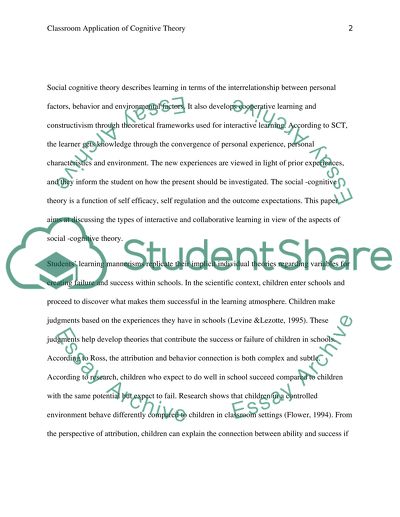Cite this document
(“Classroom applications of social cognitive theory Research Paper”, n.d.)
Retrieved from https://studentshare.org/psychology/1465744-classroom-applications-of-social-cognitive-theory
Retrieved from https://studentshare.org/psychology/1465744-classroom-applications-of-social-cognitive-theory
(Classroom Applications of Social Cognitive Theory Research Paper)
https://studentshare.org/psychology/1465744-classroom-applications-of-social-cognitive-theory.
https://studentshare.org/psychology/1465744-classroom-applications-of-social-cognitive-theory.
“Classroom Applications of Social Cognitive Theory Research Paper”, n.d. https://studentshare.org/psychology/1465744-classroom-applications-of-social-cognitive-theory.


